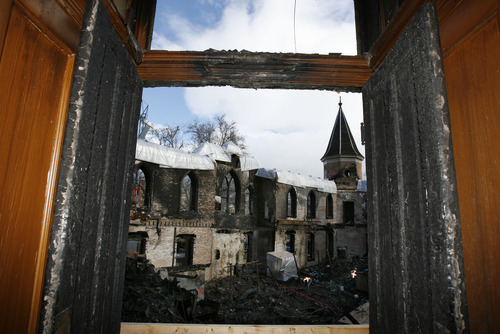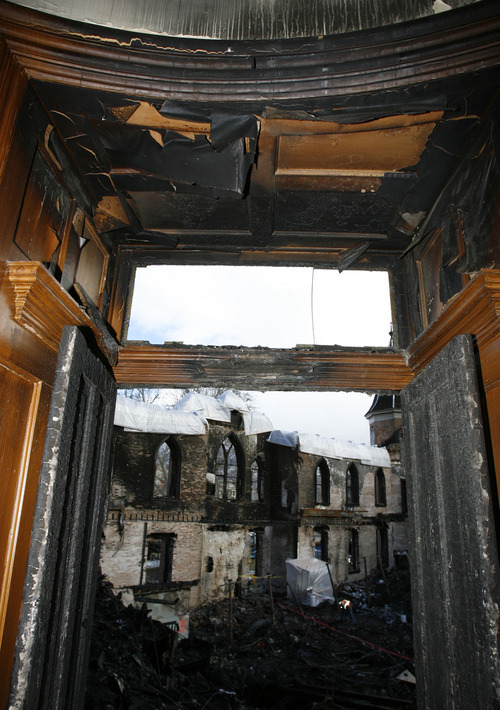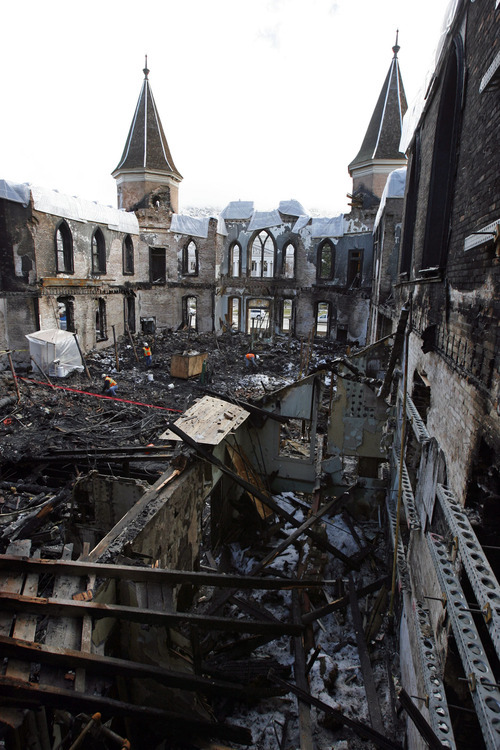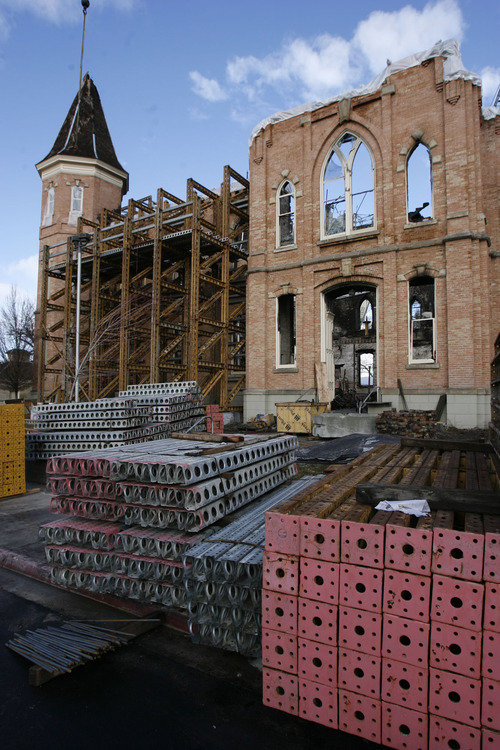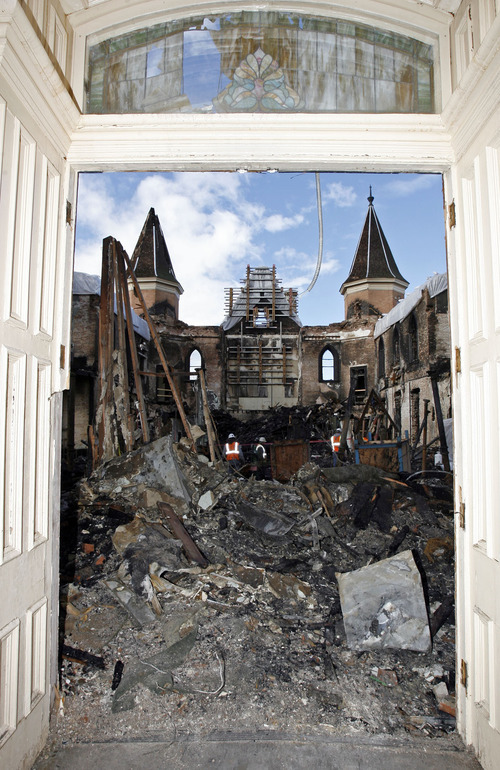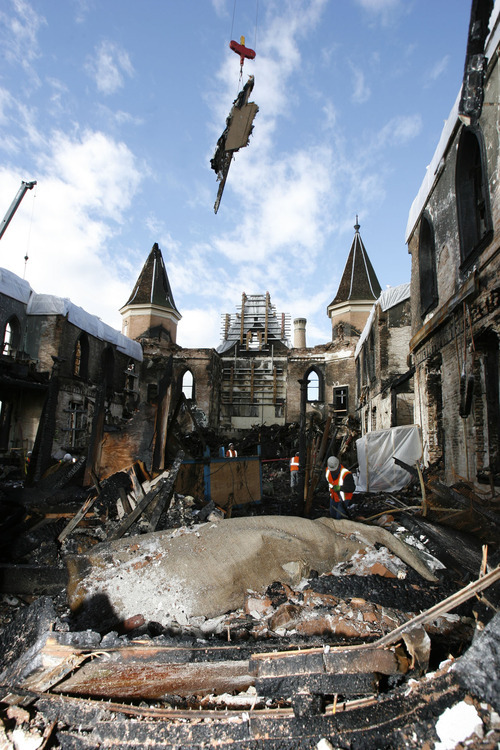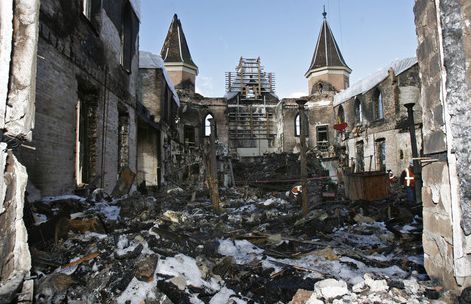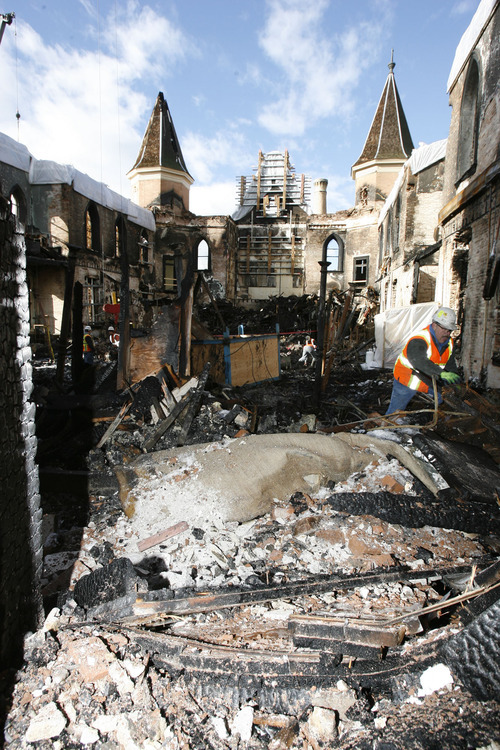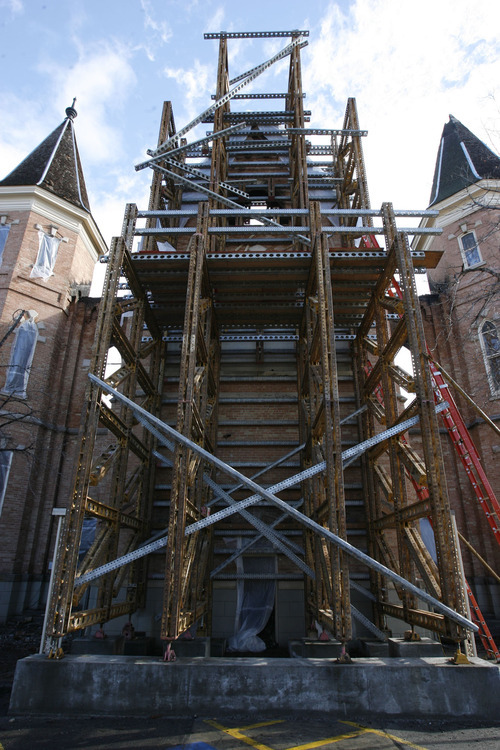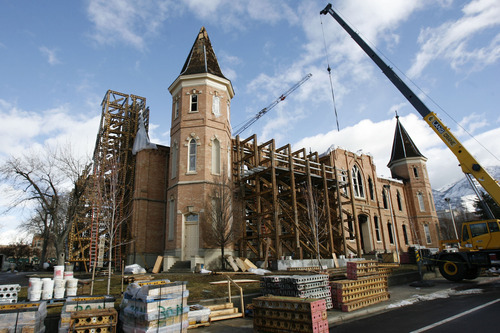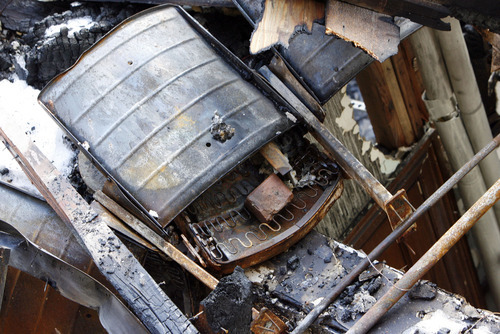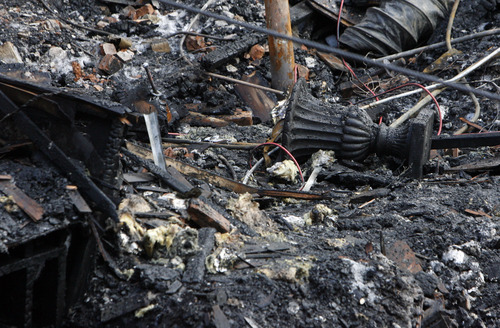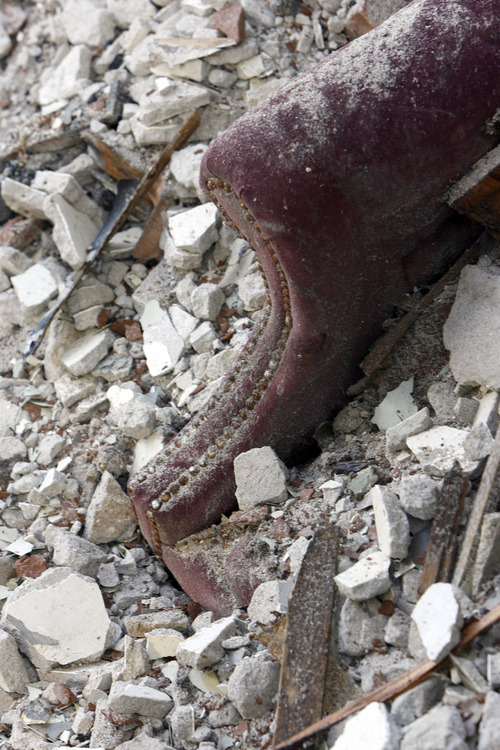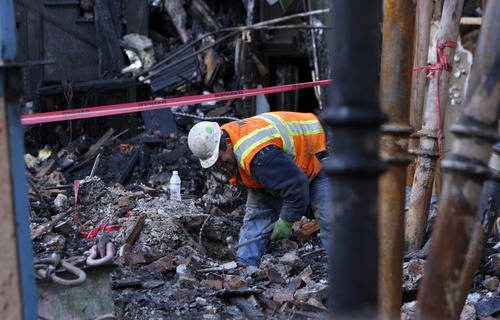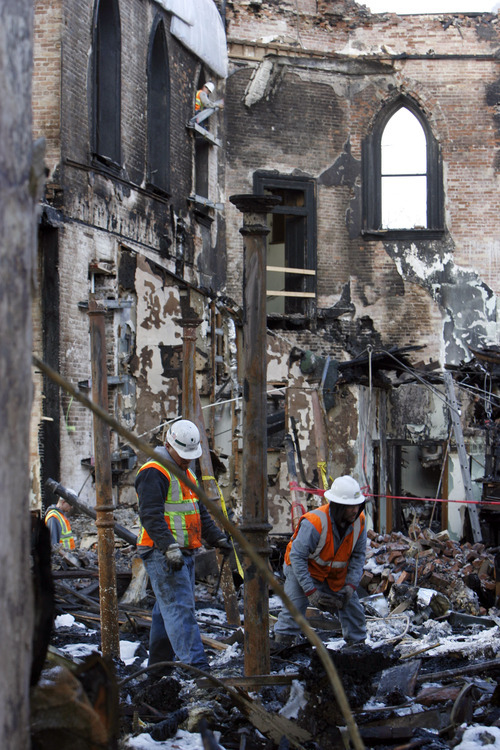This is an archived article that was published on sltrib.com in 2011, and information in the article may be outdated. It is provided only for personal research purposes and may not be reprinted.
Provo • The first sign of trouble at the Provo Tabernacle on Dec. 17 was an alarm going off in the building 90 minutes before a fire that gutted the building was reported.
But an off-duty police officer hired by a production company to do security at the tabernacle believed it was a burglar alarm and could not find any intruders inside the 127-year-old building. After being told the system was prone to false alarms, the officer disabled the alarm, Fire Chief D. Blair Camp said Wednesday.
"My understanding was, he didn't know how to access the attic," Camp said. "He was looking for an intruder."
An hour later, the same officer, identified in police reports as Austin Williams, radioed police dispatch that the historic building was on fire.
"There's a fire at the tabernacle right now. There's a fire in the roof, and it's coming down a little bit, and there's a fire on the center floor," Williams radioed dispatchers from the scene. The city released copies of the radio and phone calls, as well as response reports related to the fire. The Salt Lake Tribune and other media outletsrequested the documents under the state Government Records Access and Management Act.
Camp's briefing offered the most detailed look yet at the events leading up to the building's destruction, as well as eliminating arson as one possible cause.
"It is our determination that the fire started from an unintentional source," Camp said. But he would not speculate on other causes, including rumors that lights brought in for videotaping a performance the night before were responsible for the fire.
Camp did refute rumors that the fire department was called out on Dec. 16 for reports of smoke smell in the building. He said the only time firefighters responded was when the call went in at 2:43 a.m. on Dec. 17.
He said two members of Lex de Acevedo's production of "Gloria" reported smelling something like "a hot glue gun" or dust burning off a light bulb, but did not make that known until after the fire.
Williams was hired to watch the Brigham Young University Broadcasting trailers that were set up to tape the production at the tabernacle, as well as ensure the building remained heated through the night.
At 1:10 a.m., Williams radioed police dispatch that there was an alarm in the building. He said the control panel showed it was in the attic. Williams said he did not find anyone in the building.
William asked the dispatcher to call someone responsible for the building, including Tyler Weston, a BYU Broadcasting producer.
Camp said the officer followed protocol for a burglar alarm, but that it would be speculation to suggest events might have been different if the officer went into the attic.
At 1:25 a.m., Weston called police dispatch to tell them the LDS Church's building coordinator said the alarm had gone off before for no reason, and that Williams should reset the system.
When contacted by the Tribune, Weston declined comment, saying he was not authorized to speak to reporters.
Williams reported at 1:29 a.m. that he had reset the alarm, but it was going off every 15 seconds. Finally, at 1:34 a.m., Williams told dispatchers that he had silenced the alarm, and returned to his post outside.
A Nu Skin Enterprises security guard alerted Williams to something that looked like smoke or steam coming off the Tabernacle's roof at 2:43 a.m. Williams then radioed dispatchers, who notified the fire department. The first unit arrived at 2:44 a.m.
Camp said the first crews inside the tabernacle found the building filling with smoke, and the ceiling of the main hall starting to collapse. Rather than risk being trapped under a collapsing ceiling and roof, firefighters retreated and attacked the fire from outside, pumping water through windows
So far, investigators have removed 75 tons of debris from the building shell, most of it the roof and balcony, and were able to get to the building's alarm panel. Camp said the investigation will likely be complete within three weeks.
Camp also gave reporters a tour of the building and the staging area where debris is being placed on a life-size outline of the tabernacle.
Municipal Councilwoman Sherrie Hall Everett accompanied reporters, and got her first up-close glimpse of the destruction, which left her nearly speechless.
"It's just sad to see all of that craftsmanship gone," Everett said as she looked through the building's east doors at the charred remains amid a smell of burnt wood. "[The Tabernacle] does have a soul."
Camp said the LDS Church has cooperated fully with investigators. He said the church hired Jacobsen Construction to shore up the west and south walls with steel beams and brought in cranes to lift debris out of the shell of the building.
twitter.com/donaldwmeyers —
Hear the 911 calls
Provo City on Wednesday released recordings of calls made to police by a security guard at the Provo Tabernacle on the night it was destroyed by fire. • http://www.sltrib.com.


